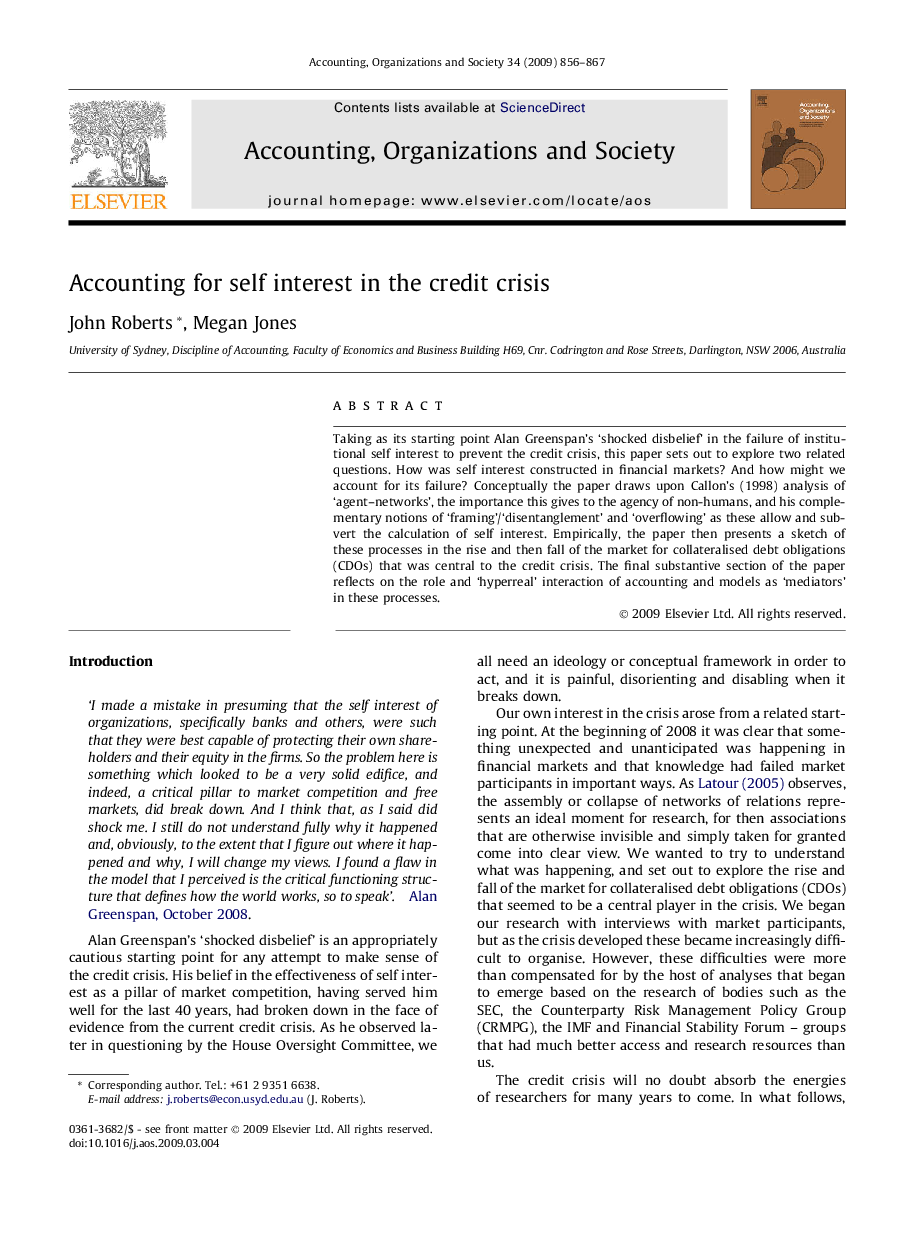| Article ID | Journal | Published Year | Pages | File Type |
|---|---|---|---|---|
| 878795 | Accounting, Organizations and Society | 2009 | 12 Pages |
Taking as its starting point Alan Greenspan’s ‘shocked disbelief’ in the failure of institutional self interest to prevent the credit crisis, this paper sets out to explore two related questions. How was self interest constructed in financial markets? And how might we account for its failure? Conceptually the paper draws upon Callon’s (1998) analysis of ‘agent–networks’, the importance this gives to the agency of non-humans, and his complementary notions of ‘framing’/‘disentanglement’ and ‘overflowing’ as these allow and subvert the calculation of self interest. Empirically, the paper then presents a sketch of these processes in the rise and then fall of the market for collateralised debt obligations (CDOs) that was central to the credit crisis. The final substantive section of the paper reflects on the role and ‘hyperreal’ interaction of accounting and models as ‘mediators’ in these processes.
